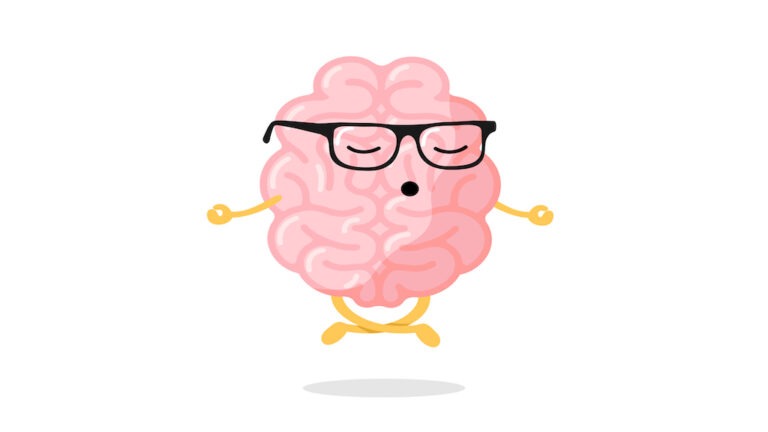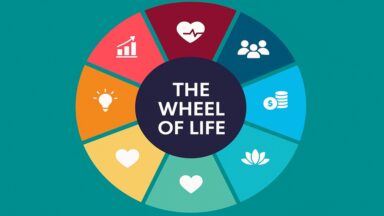Can Mindfulness and a Psychology Class Make You Happier?

By studying the effects of mindfulness on psychiatric patients, and the pursuit of happiness, can we teach ourselves how to be happier?
The term mindfulness has entered popular culture in recent years, but this ancient Buddhist practice actually began gaining acceptance in western medicine in the 1970s.
The three main tenets of mindfulness are:
- Intention to cultivate awareness
- Attention to what is occurring in the present moment
- An attitude that is non-judgmental
In a recent article for psychiatric times, researchers looked at how mindfulness-based treatments work for psychiatric patients, and how these therapies can enhance and even replace pharmaceutical interventions. They found a wealth of evidence that mindfulness-based therapies have overwhelmingly positive effects on patients.
With mindfulness-based cognitive therapy reducing the rate of relapse rates for patients with major depression similar to that of pharmaceuticals, they also showed reduced anxiety, depression, and increased cognition.
The researchers point out, however, that, “Despite this evidence, pharmacotherapy remains the main treatment option for many patients with mental disorders, although about 75 percent of patients with mental disorders prefer psychotherapy. Researchers recommend implementing mindfulness-based therapies in place of, or in concert with, pharmacotherapy especially as the population grows older and cognitive issues become more common.
What makes us truly happy? Fame? Fortune? True happiness may be closer than you think, and a recent study shows we can learn to be happier.
Perhaps the most famous study of happiness, the “Harvard Study of Adult Development,” began in 1938 and studied students at Harvard University. It was coupled with another study of kids from Boston’s poorest neighborhoods, throughout their lives, and remains the longest-running longitudinal study of happiness and life satisfaction.
The main takeaway: happiness and satisfaction were not based on wealth, fame, or power, but on strong friendships and relationships.
But nowadays we are often more secluded. Social media friends are not always real friends and can take us away from human contact. And comparing our lives to the curated lifestyles we see on the internet often makes us depressed. But there is a way to help cure that.
Just ask Laurie Santos, professor of Psychology at Yale University, who teaches the free online course, “The Science of Well Being” a class on increasing happiness, and ways to deal with habits that can make us unhappy as she told new scientists “for many of us, our happiness is much more under our control than we think.”
These controls include:
- Practicing mindfulness,
- The use of gratitude journals to help us avoid “hedonic adaptation”, our tendency to become accustomed to a new positive life situation.
- Talking to strangers can increase social connection.
- Recognizing when we are comparing ourselves to others… and shifting our focus to something positive.
These tactics can be significant and long-lasting. A recent study conducted by Santos showed people who took the 10-week “Science of Well-Being” class compared to people who took a general psychology course were significantly happier, and for a longer period of time.
Santos concludes that courses like hers are, “A public health tool that could be used to improve mental health in the population.”
And as George Vaillant, director of the Harvard Study for three decades once wrote, “Happiness is love. Full stop.”
How Does an HSP Cope With All the Suffering in the World?

If you’re not familiar with the term HSP, please see the definition for “Highly Sensitive Person” from Dr. Elaine Aron.
With no simple answer, I’m afraid. I’ve pondered my own answer to this question for several years. The following Meditation of Hope and Love came to me during one of my own meditations a few years ago. I use it often…and lately, that means almost daily!
A Meditation of Hope and Love
Find a meditation time – at least 30 minutes, or longer, if possible. You know the criteria – quiet, uninterrupted time and space, preferably your own special place that may have candles or a special feeling of comfort and security for you.
Sit or lie down in a very comfortable position. (I prefer lying, with something light and soft to cover me.)
- Begin slow, deep breathing, focusing on blowing all your breath out – as if blowing out a candle.
- Breathe in deeply, through your nose, to a count of 8 or 10. Hold for a count of four.
- Breathe out, again as if blowing out a candle, to a count of ten.
You want to create a very deep cleansing breath. Notice: You might begin yawning, or drifting off to sleep. Go with whatever feels best for you. There is no ‘doing it wrong’ here. Just keep practicing until eventually you can complete the whole meditation. Now here comes the harder, yet important part.
Begin to allow your mind to go ahead and focus on all the things you have been concerned or worrying about. Like many of you, I have been close to tears each day as I hear about all the suffering in the world.
Lovingly ask each individual concern to patiently wait in line — assuring them they will all have a chance to be heard. In your relaxed state, begin to see each entity forming a line, waiting patiently. As they come up to be heard, assign them a name like Robin Williams, Gaza/Palenstine conflict, Nigerian girls or maybe for you it might be lost job, finances, or whatever else evolves as an appropriate and loving way to remember and honor your concerns.
As an HSP, these kinds of images tend to burrow deep into my inner world and I can begin to feel burdened, lethargic, and sometimes hopeless. Cognitively, I know there is really nothing I can (concretely) do about these tragedies, yet my yearnings for a better world keep my mind occupied.
Now comes the next step in your meditation.




































